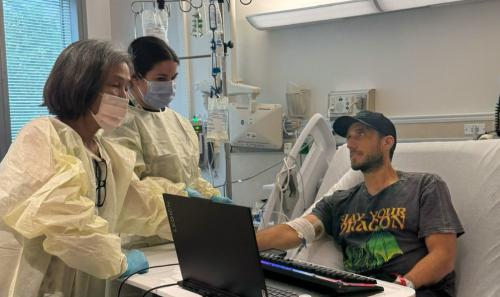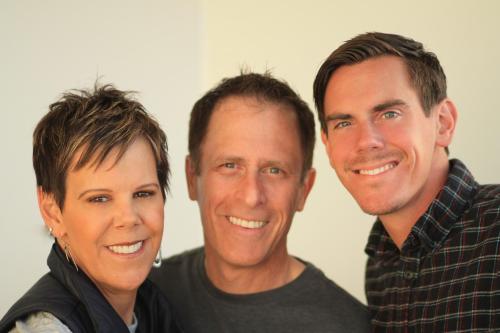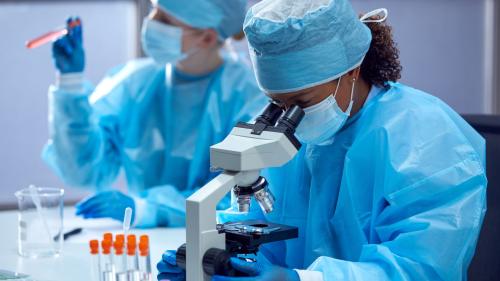
-
Understanding primary immunodeficiency (PI)

Understanding PI
The more you understand about primary immunodeficiency (PI), the better you can live with the disease or support others in your life with PI. Learn more about PI, including the various diagnoses and treatment options.
-
Living with PI
-
Addressing mental health
-
Explaining your diagnosis
- General care
- Get support
- For parents and guardians
-
Managing workplace issues
- Navigating insurance
-
Traveling safely

Living with PI
Living with primary immunodeficiency (PI) can be challenging, but you’re not alone—many people with PI lead full and active lives. With the right support and resources, you can, too.
-
Addressing mental health
-
Get involved

Get involved
Be a hero for those with PI. Change lives by promoting primary immunodeficiency (PI) awareness and taking action in your community through advocacy, donating, volunteering, or fundraising.
-
Advancing research and clinical care
-
Research Grant Program
-
Consulting immunologist
-
Diagnosing PI
-
Getting prior authorization
-
Clinician education
-
Survey research
-
Participating in clinical trials

Advancing research and clinical care
Whether you’re a clinician, researcher, or an individual with primary immunodeficiency (PI), IDF has resources to help you advance the field. Get details on surveys, grants, and clinical trials.
-
Research Grant Program
Parents of children with adenosine deaminase severe combined immunodeficiency (ADA-SCID) anxiously await the restart of gene therapy clinical trials at the University of California of Los Angeles (UCLA), and an upcoming SCID Compass Lunch & Learn offers them an update.
During the Lunch & Learn, UCLA Professor of Microbiology, Immunology, Molecular Genetics, and Pediatrics Dr. Donald Kohn, is scheduled to share the status of gene therapy as an available treatment option for children with ADA-SCID and their families.
“Gene Therapy Updates for ADA-SCID” takes place at 2 p.m. on Wednesday, Sept. 14, and registration is required.
Children born with ADA-SCID lack an important enzyme responsible for helping the immune system function. Without the enzyme, toxins build up in a child’s system and eliminate immune system cells. Children with ADA-SCID have low T cells, B cells, and natural killer cells, making them vulnerable to life-threatening infections. Though ADA-SCID is a rare primary immunodeficiency (PI), it does account for about 15 percent of SCID cases.
Current FDA-approved treatment options include enzyme replacement therapy (ERT) and bone marrow transplant (BMT), both of which have drawbacks.
ERT requires a once or twice-weekly intramuscular injection of Revcovi, a manufactured recombinant protein that helps perform the function of the missing ADA enzyme. The treatment is lifelong and can cause side effects such as coughing, vomiting, anemia, skin-related problems, and cancers of the immune system. Patients on ERT must also sometimes take antibiotics, antifungal drugs, and immunoglobulin replacement therapy to stay healthy.
BMT provides the person with ADA-SCID a functioning immune through a stem cell donor. However, a BMT requires the donor to be a tissue match for the recipient and some persons with ADA-SCID cannot find a match. BMT also can result in severe side effects including graft versus host disease (GVHD.) In GVHD, donor cells attack the recipient’s body requiring lifelong anti-rejection medicines.
The latest findings from the gene therapy clinical trials for ADA-SCID show that gene therapy provides a safer, more long-lasting alternative treatment. In gene therapy, doctors collect the patient’s own blood stem cells containing the faulty gene, add a working copy of the gene, and infuse the corrected cells back to the patient. Because the patient is receiving their own cells, there is no need for a donor and no risk of GVHD.
In gene therapy clinical trials performed between 2012 and 2017 by UCLA, University College London (UCL), and the National Institute of Health (NIH), 50 patients with ADA-SCID received gene therapy treatment, and 48 developed healthy immune systems. The remaining two patients returned to ERT, with one eventually undergoing BMT.
To bring the gene therapy for ADA-SCID to market and gain FDA approval, Orchard Therapeutics purchased the rights to the treatment and assumed supervision of the trials in 2018, but Orchard failed to follow through and the trials stalled.
By the spring of 2021, under pressure from at least 20 families waiting on gene therapy treatment for their children, Orchard passed control of the gene therapy clinical trials back to UCLA and UCL.
Progress on getting the trials back on track has been slow because the FDA has ordered changes in how the procedure is performed. So far, the clinical trials have not resumed, and Kohn is expected to detail the reasons for the delay and discuss a revised timeline for clinical trials to resume.
_______________________________________________________________________________________
Get IDF blogs and podcasts delivered straight to your inbox! To sign up, follow these steps:
Go to the My Profile page of your IDF Account. If you’re not signed in, sign in or create a new account.
Scroll down to the Portal Communications Preferences section.
For Communications Level, select Power Reader from the drop-down box.
Related resources
Sign up for updates from IDF
Receive news and helpful resources to your cell phone or inbox. You can change or cancel your subscription at any time.





The Immune Deficiency Foundation improves the diagnosis, treatment, and quality of life for every person affected by primary immunodeficiency.
We foster a community that is connected, engaged, and empowered through advocacy, education, and research.
Combined Charity Campaign | CFC# 66309




